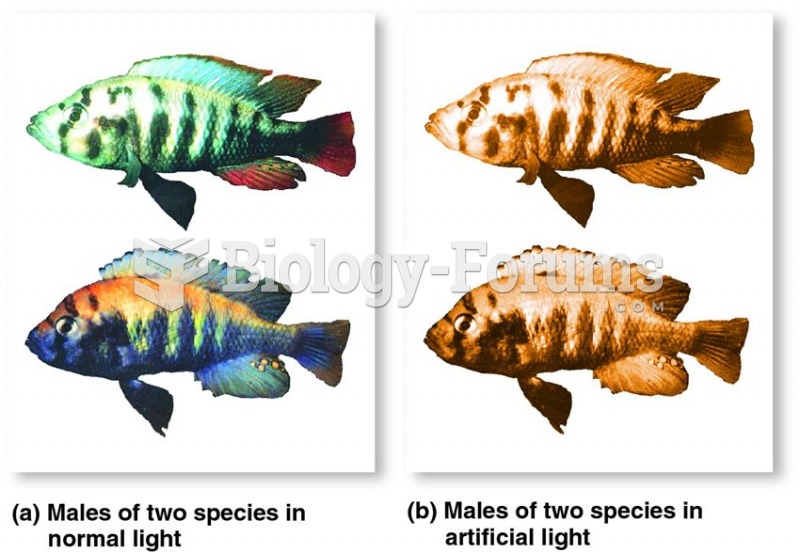|
|
|
The Centers for Disease Control and Prevention has released reports detailing the deaths of infants (younger than 1 year of age) who died after being given cold and cough medications. This underscores the importance of educating parents that children younger than 2 years of age should never be given over-the-counter cold and cough medications without consulting their physicians.
Computer programs are available that crosscheck a new drug's possible trade name with all other trade names currently available. These programs detect dangerous similarities between names and alert the manufacturer of the drug.
Pubic lice (crabs) are usually spread through sexual contact. You cannot catch them by using a public toilet.
Bacteria have flourished on the earth for over three billion years. They were the first life forms on the planet.
More than 34,000 trademarked medication names and more than 10,000 generic medication names are in use in the United States.







